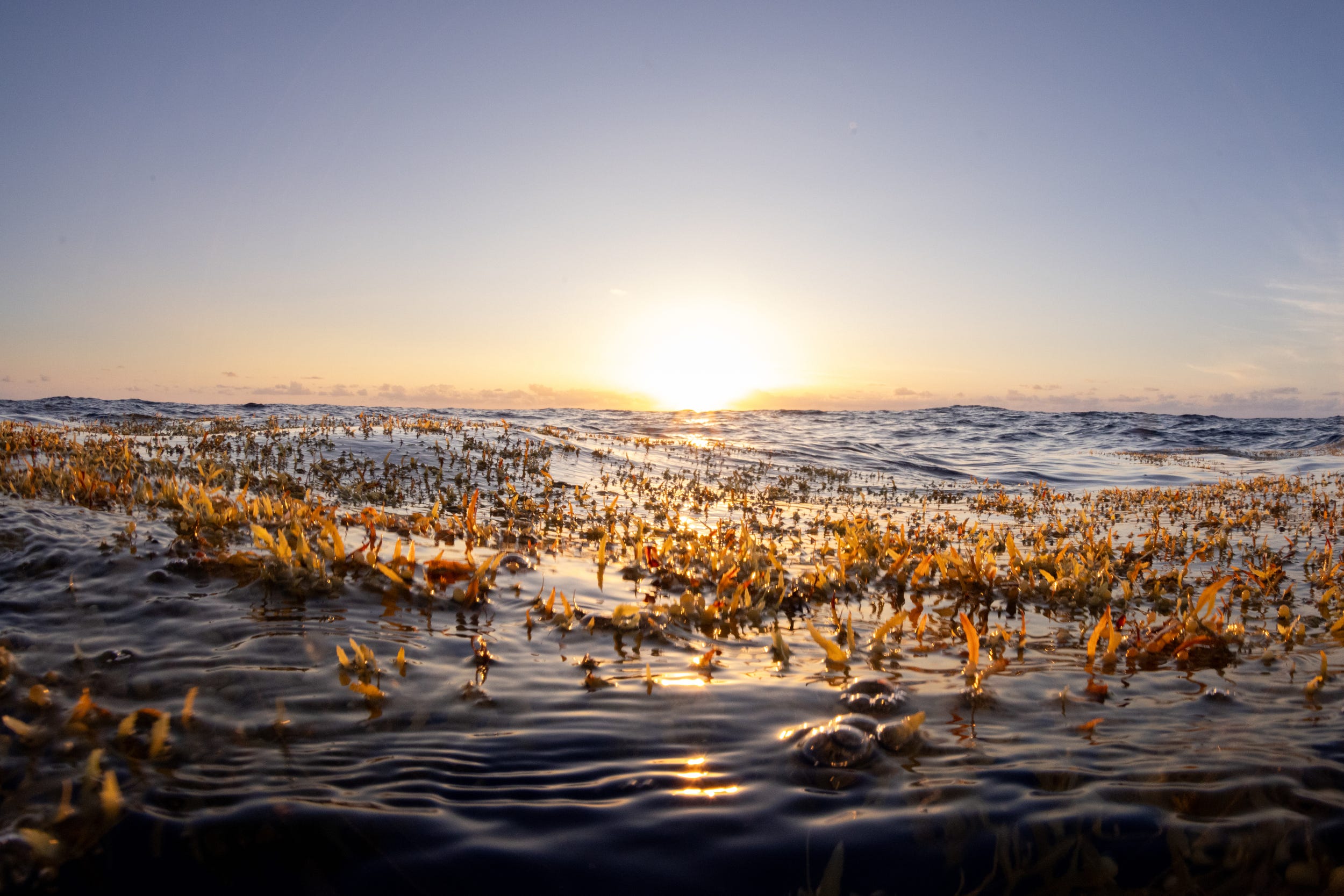Wildlife-rich Sargasso Sea a ‘Wild West’ of fishing and shipping – Greenpeace
The environmental campaign group is calling on the Government to champion the sea as a sanctuary under the new UN Global Oceans Treaty.

Your support helps us to tell the story
From reproductive rights to climate change to Big Tech, The Independent is on the ground when the story is developing. Whether it's investigating the financials of Elon Musk's pro-Trump PAC or producing our latest documentary, 'The A Word', which shines a light on the American women fighting for reproductive rights, we know how important it is to parse out the facts from the messaging.
At such a critical moment in US history, we need reporters on the ground. Your donation allows us to keep sending journalists to speak to both sides of the story.
The Independent is trusted by Americans across the entire political spectrum. And unlike many other quality news outlets, we choose not to lock Americans out of our reporting and analysis with paywalls. We believe quality journalism should be available to everyone, paid for by those who can afford it.
Your support makes all the difference.The wildlife-rich Sargasso Sea is a “Wild West” of industrial fishing and shipping, Greenpeace has warned as it called for the region to be made an ocean sanctuary.
Greenpeace research suggests fishing vessels placed drifting longlines, which hook marine mammals, turtles, seabirds and sharks along with fish, with an estimated total length of more than 1,200 miles through the sea last year.
Including fishing vessels, more than 9,000 ships spent a combined total of 213 years crossing the sea, which lies mostly in international waters – or the high seas – in the north Atlantic, figures from the campaign group show.
It is calling on the UK Government to ratify the new UN Global Oceans Treaty, which allows for the creation of sanctuaries in the high seas, and to champion the Sargasso Sea as one of the first major protected areas.
Greenpeace vessel the Arctic Sunrise has spent the last three weeks on a voyage through the Sargasso Sea, documenting its wildlife, conducting scientific research and engaging with decision-makers in Bermuda – which lies close to the sea – and beyond.
The Sargasso Sea, named after its masses of floating sargassum seaweed which is a key habitat and carbon store, is home to a rich array of wildlife and is the spawning ground for European eels and a nursery for young turtles.
But figures from Greenpeace, compiled from data from Global Fishing Watch, show that fishing vessels – mostly from Taiwan, the US, China and Spain – spent a combined total of 22,000 hours apparently fishing in the sea.
The vast majority of fishing activity, 97%, involves longlines, which are long fishing lines with baited hooks which catch a wide range of species as bycatch alongside the target fish.
The volume of vessels of any type crossing the Sargasso Sea has increased by more than 30% since 2018, according to the green campaign group, with most ships being more than 100 metres long.
Fiona Nicholls, oceans campaigner for Greenpeace UK, said: “We’ve seen with our own eyes how the Sargasso Sea is a wildlife haven for many species that are found nowhere else, as well as for baby sea turtles and seabirds on their epic migrations across the Atlantic Ocean.
It's time to swiftly cement the international agreement into UK law and champion the Sargasso Sea as the world's first ocean sanctuary under the treaty
“But our research shows the sea is a Wild West that is facing growing pressure from shipping and industrial fishing fleets.
“Drifting longlines pose a major risk to this precious ecosystem because they fish indiscriminately, hooking marine mammals, turtles, seabirds and sharks along with their intended catch.
“Huge container ships and tankers plough through these waters every waking hour.”
She called on the UK Government to “transform symbolic commitment to protect the global oceans into bold action”.
“It’s time to swiftly cement the international agreement into UK law and champion the Sargasso Sea as the world’s first ocean sanctuary under the treaty,” she added.
Greenpeace UK is co-ordinating an open letter signed by Bermudian organisations and community members calling on the UK Government to propose the measure.
It had also called for Foreign Secretary Lord Cameron to ratify the treaty, which requires legislation and parliamentary time, but the calling of the General Election means that will not now happen until a new government is formed.
As the Sargasso Sea lies mostly outside national marine borders, opportunities for protection have been limited, but the new UN treaty makes it possible to create protected areas on the high seas limiting human activity such as fishing, to conserve and restore nature.